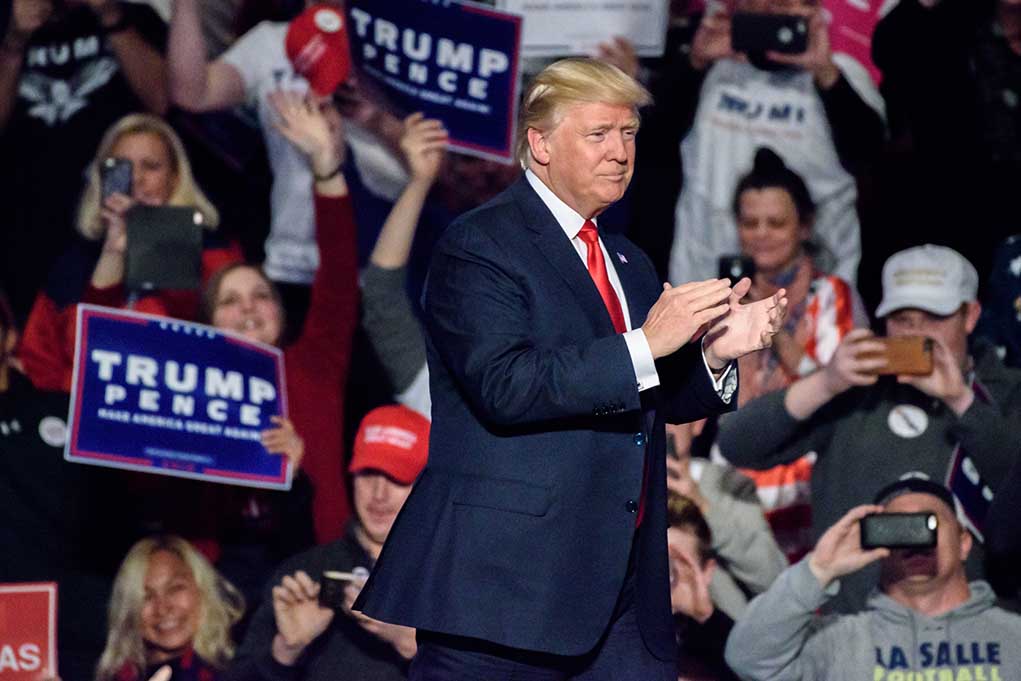
The Trump administration’s sweeping federal workforce overhaul is sparking legal and ethical concerns.
Key Takeaways
- The White House offers buyouts to federal employees leaving their jobs by February 6.
- Actions against disloyal government personnel include removals and loss of security clearances.
- Former officials predict potential retribution efforts to escalate further.
- Lawsuits challenge the legality of these executive orders.
Buyouts and Purges
The White House is actively reshaping its workforce by providing federal employees seven months’ salary as an incentive to resign by February 6. This move, part of President Donald Trump’s broader government overhaul strategy, is expected to impact many employees across the federal workforce. An official memo outlines four main directives, one of which requires most federal workers to return to their offices full-time. For those interested in the buyout, a “deferred resignation letter” option has been made available.
This program is effective from January 28 and is available to all federal employees until February 6. Employees who choose to resign under this program will keep all pay and benefits, exempt from in-person work requirements until September 30. These measures have created a sense of uncertainty among federal employees. Trump has adopted a strategy to remove personnel deemed disloyal, which may have legal implications.
Legal Concerns and Ethical Implications
The administration’s drive to replace non-loyalists with loyalists comes amidst firing of inspectors general and possible federal law violations. Additionally, actions have extended against former officials perceived as disloyal, with some losing security clearances. President Trump’s determination to populate the government with loyalists raises concerns about loss of independence in traditionally nonpartisan areas. Legal challenges have surfaced, with some executive orders characterized as vague.
“The President has no authority to make that offer. There’s no budget line item to pay people who are not showing up for work. If you accept that offer and resign, he’ll stiff you.” – Democratic Sen. Tim Kaine
Attempts to refocus the government’s composition toward loyalists have involved stripping job security protections from some. Democratic Sen. Tim Kaine warns against resignation offers due to potential funding issues. Legal challenges to Trump’s executive orders persist, adding to the controversy over this workforce overhaul.
By BEN WEINGARTEN | REAL CLEAR INVESTIGATIONS
Progressives are using legal loopholes and the power of the federal government to maximize Democrat votes in the 2024 election at taxpayers’ expense, RealClearInvestigations has found.The methods include voter registration and…
— 907Honest (@907Honest) October 13, 2024
Retaliatory Measures Escalate
Trump’s actions include firing of independent inspectors general, removal of Democrats from commissions, and stripping Secret Service protection from figures like John Bolton. Military figures, such as Retired Gen. Mark Milley, have faced similar treatment. Trump’s nominee for the FBI, Kash Patel, represents ongoing efforts to replace figures with loyalists. Concerns grow among former officials about continued retaliatory measures.
“There’s only one interpretation that makes any sense. It was political. And this is part of an effort at retribution.” – John Bolton
The ongoing retribution efforts underline broader ethical implications of reshaping government for perceived loyalty over competence. The administration’s actions and ongoing retribution efforts have stirred significant debate and alarm.
Sources
1. Trump offering federal workers buyouts with about 8 months’ pay in effort to shrink government
2. Trump goes to war with the federal workforce




